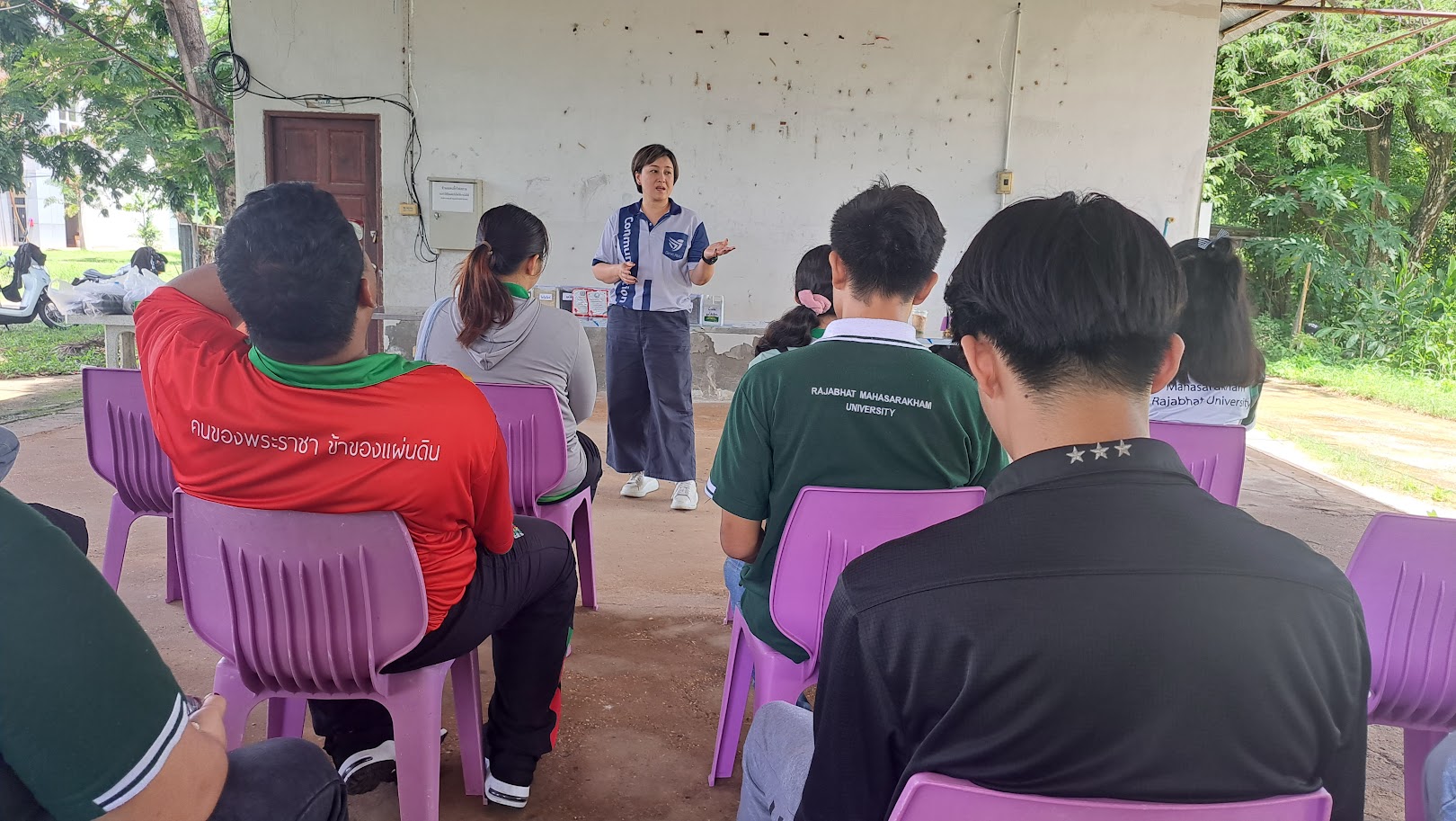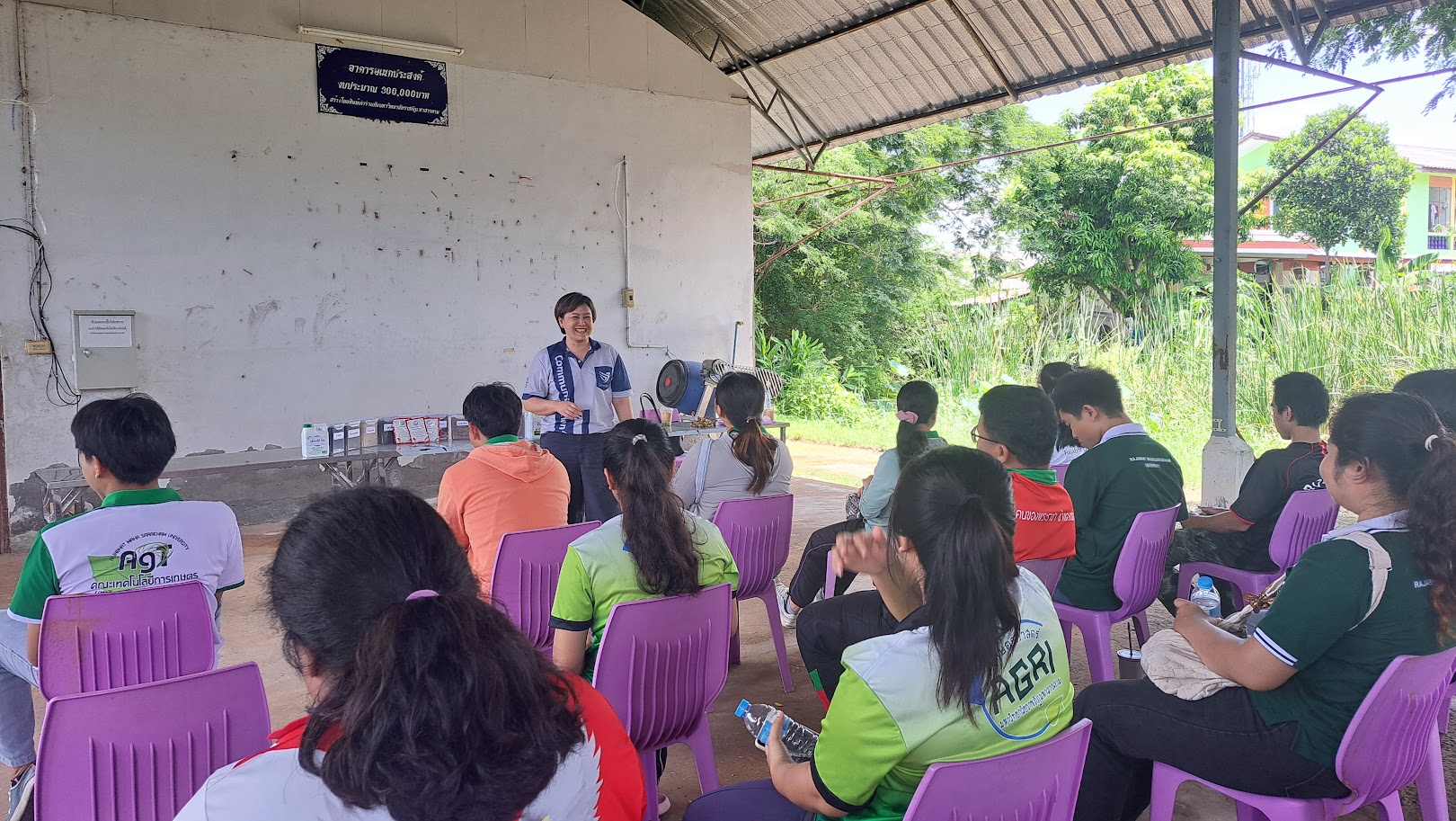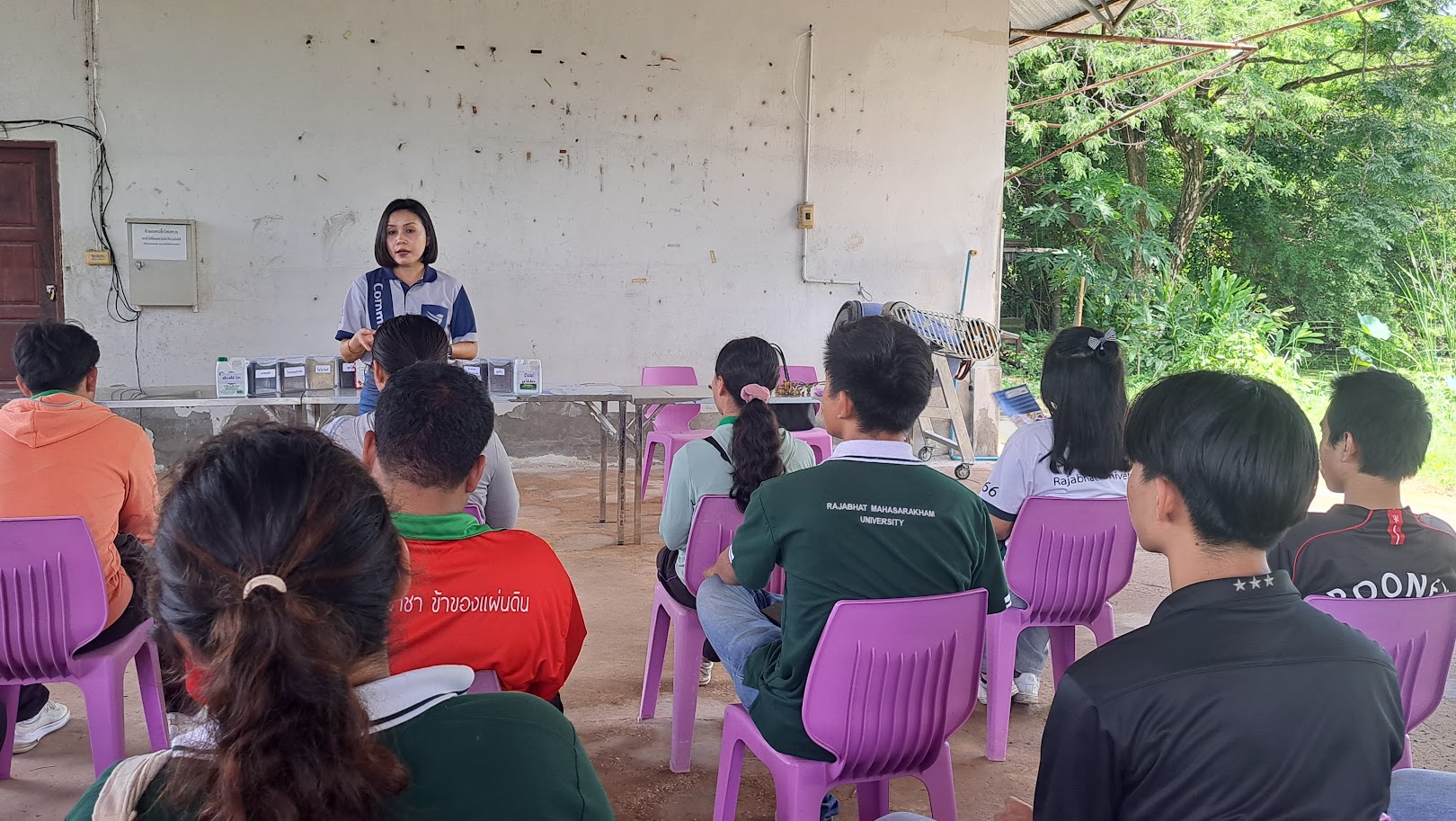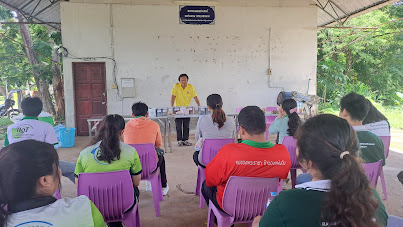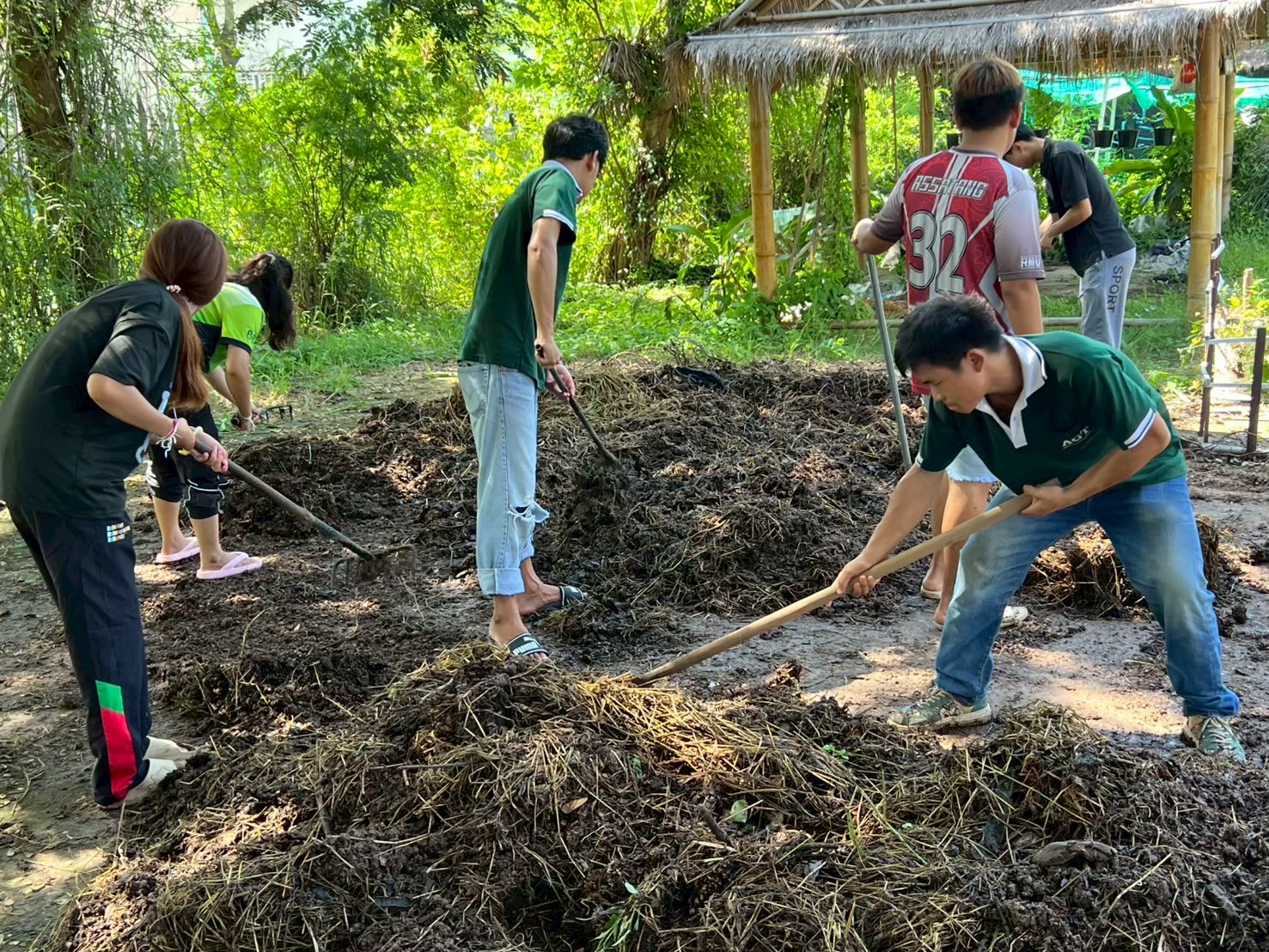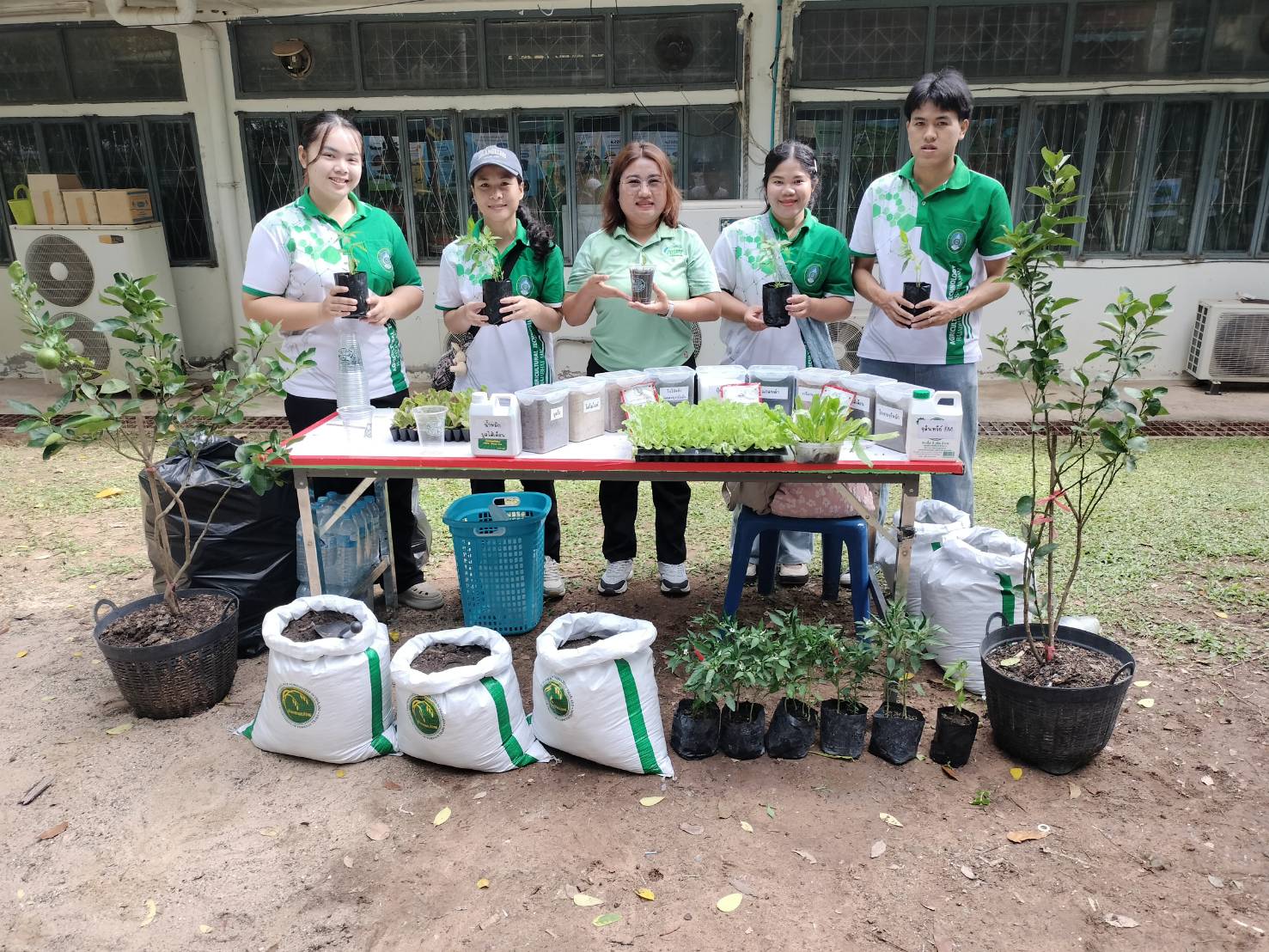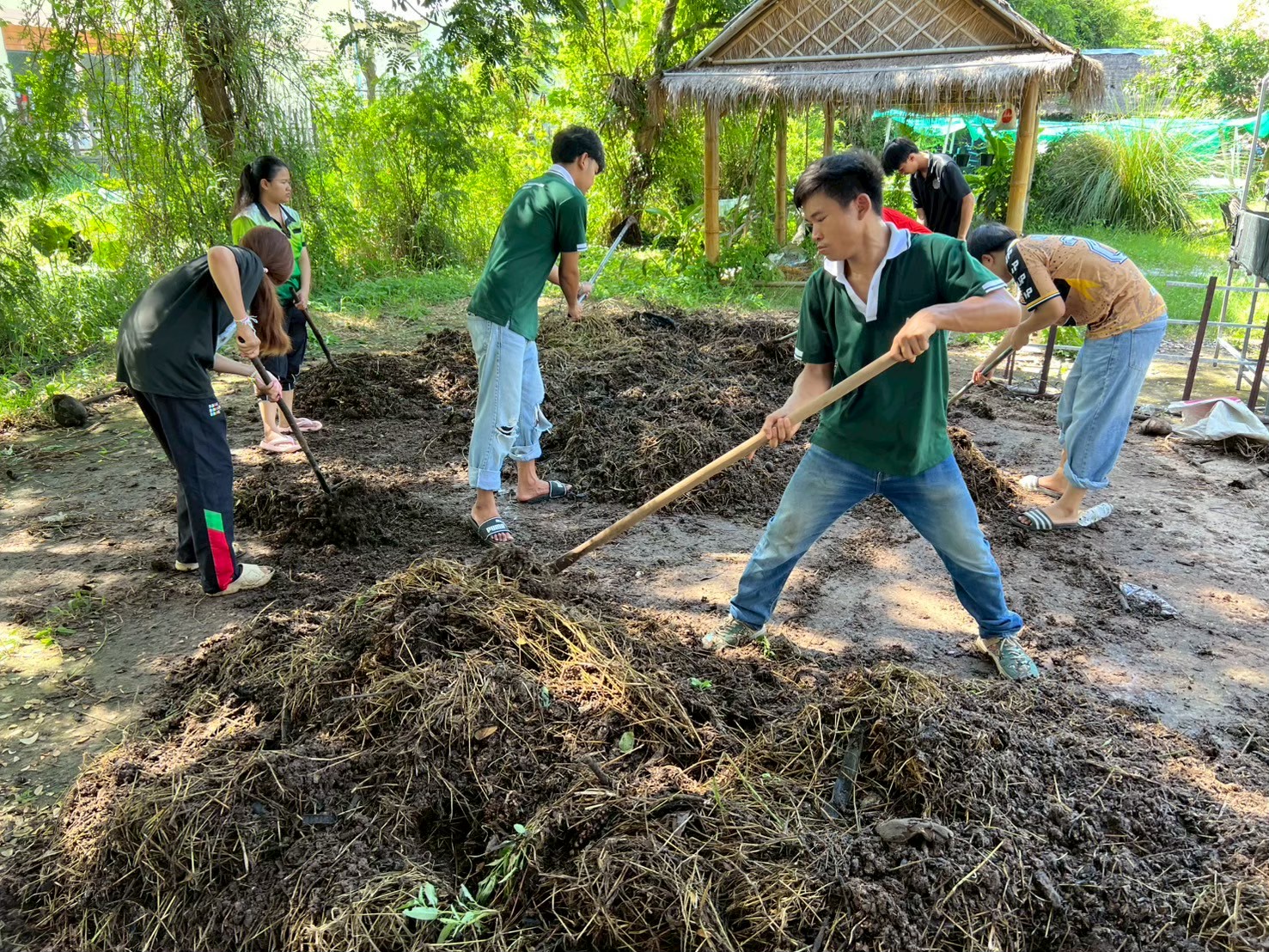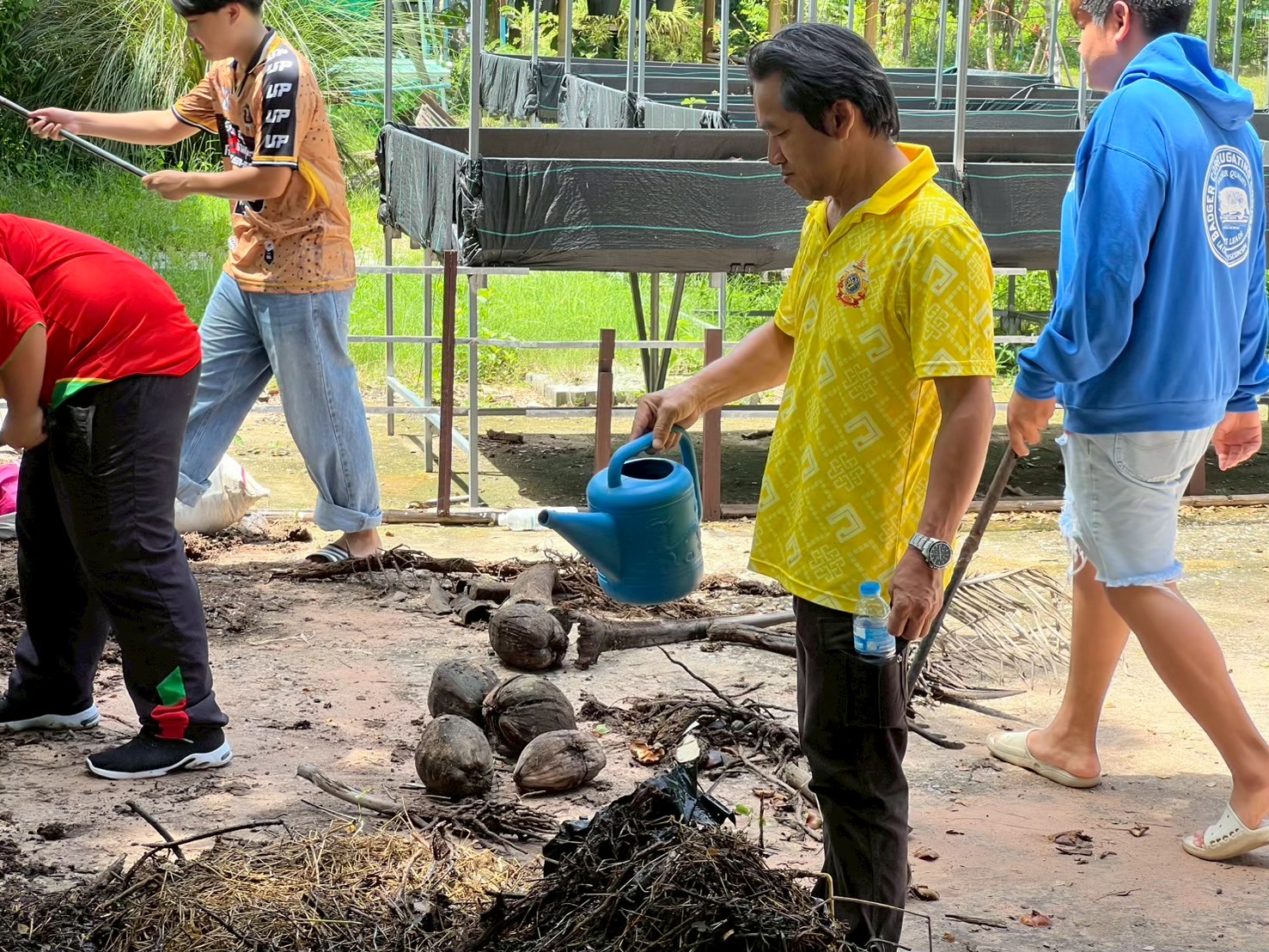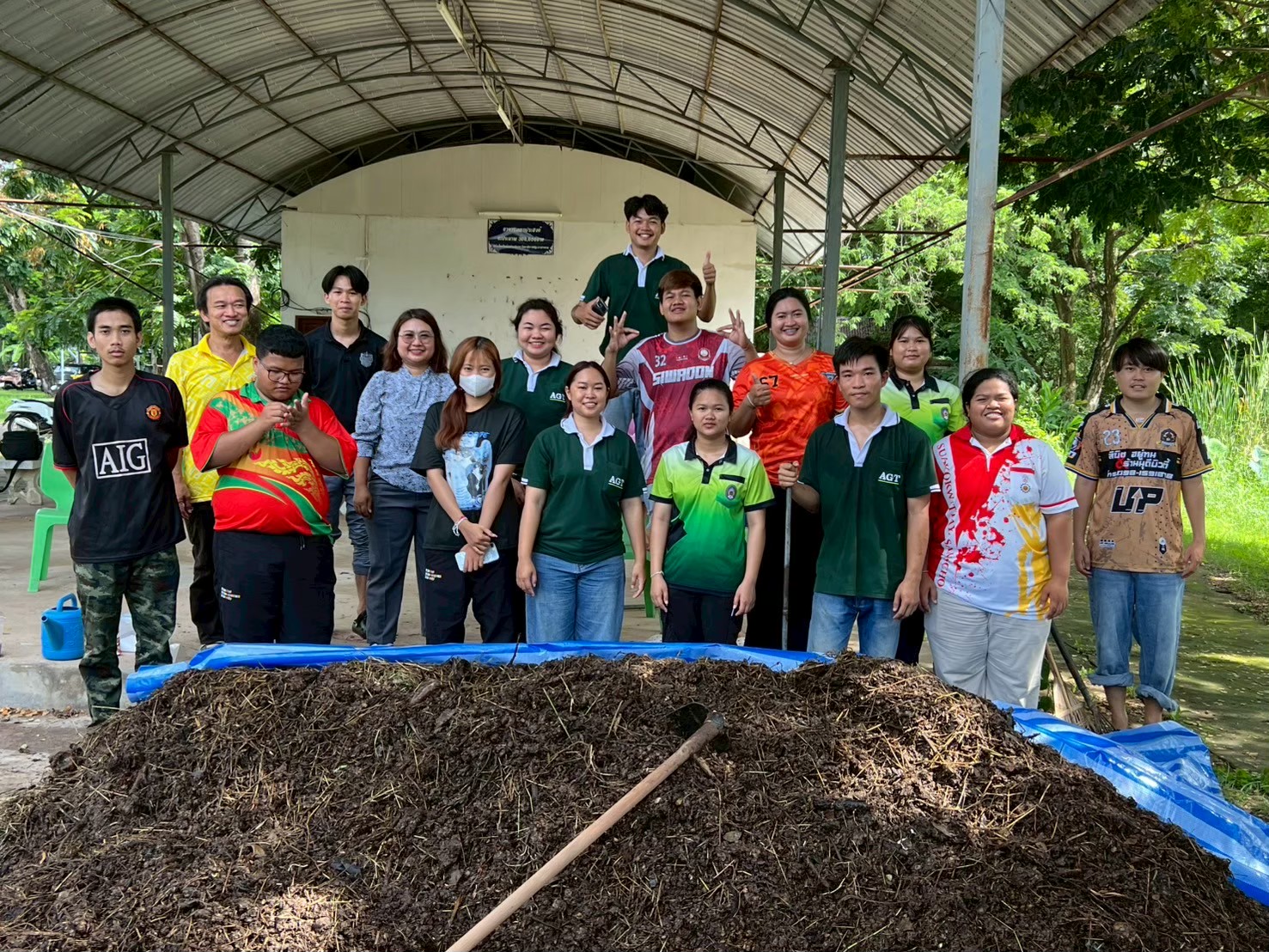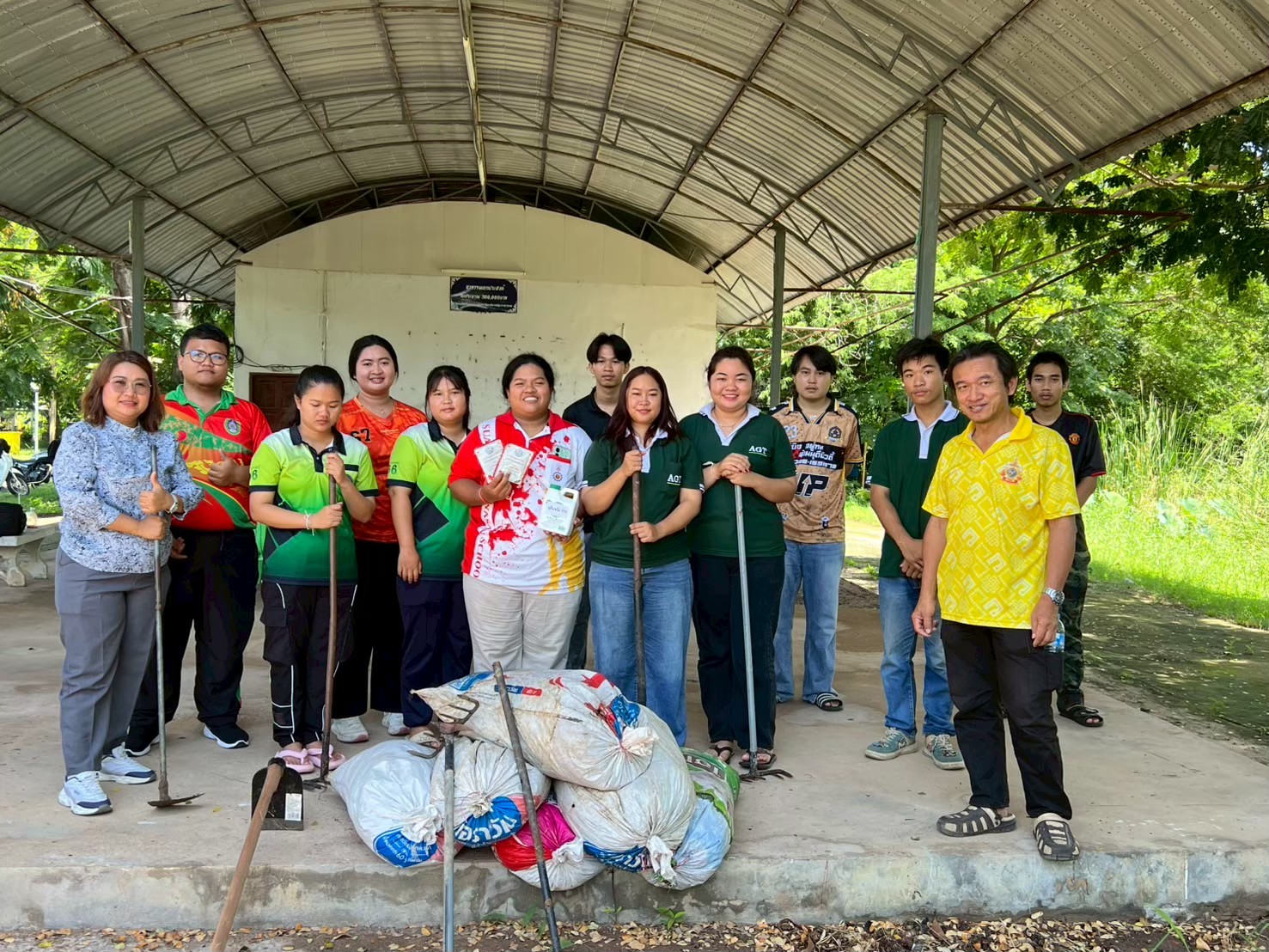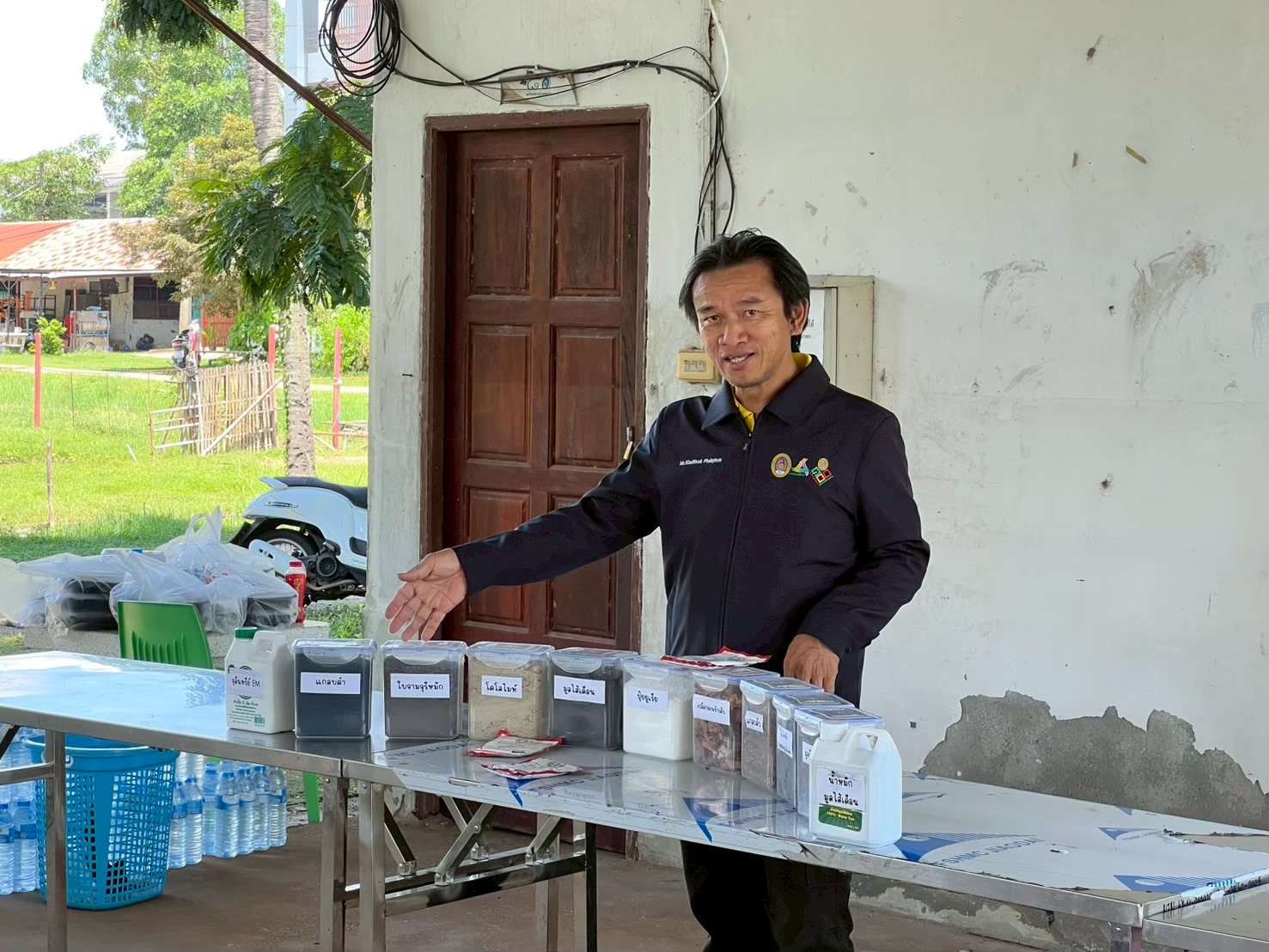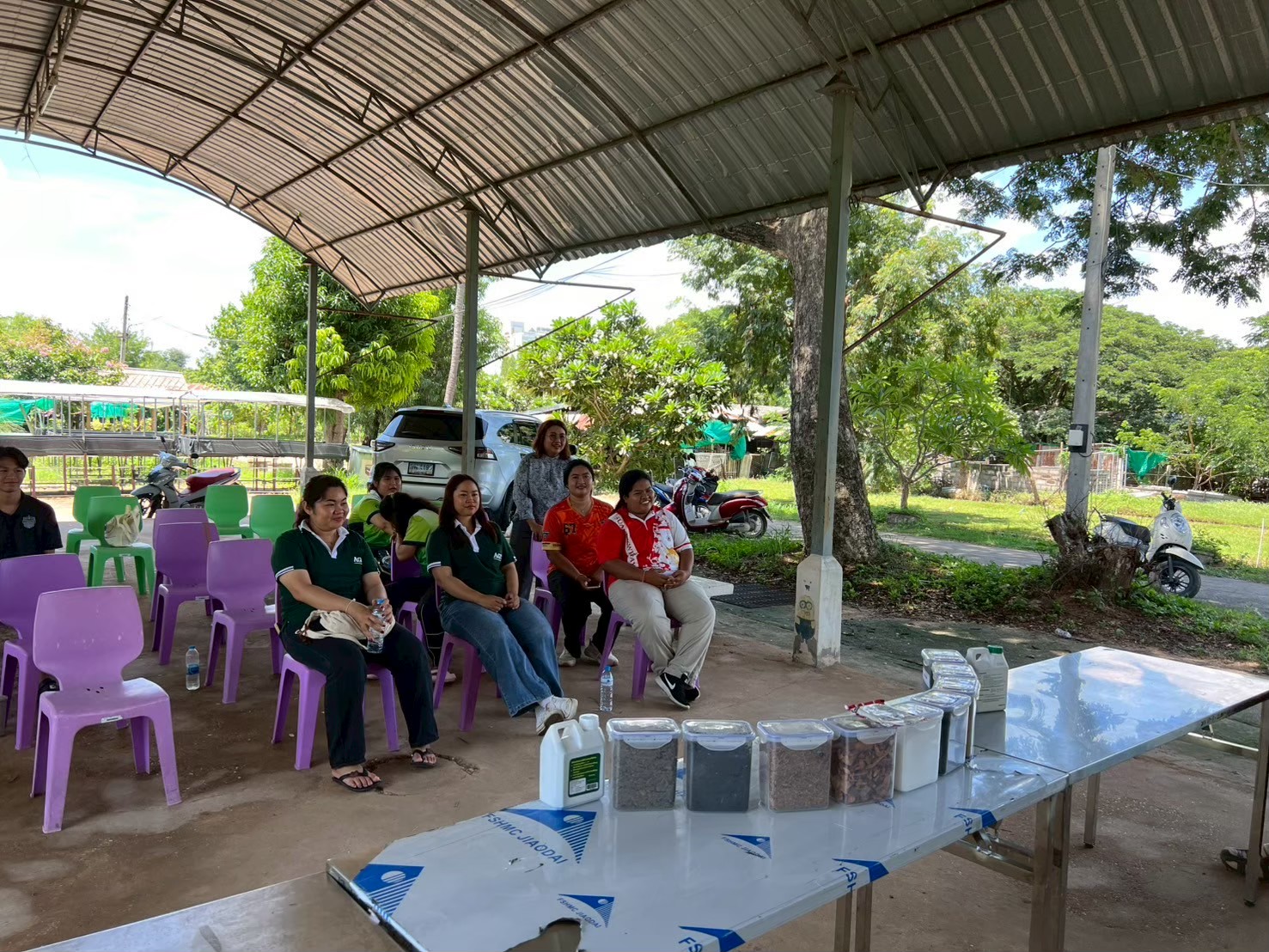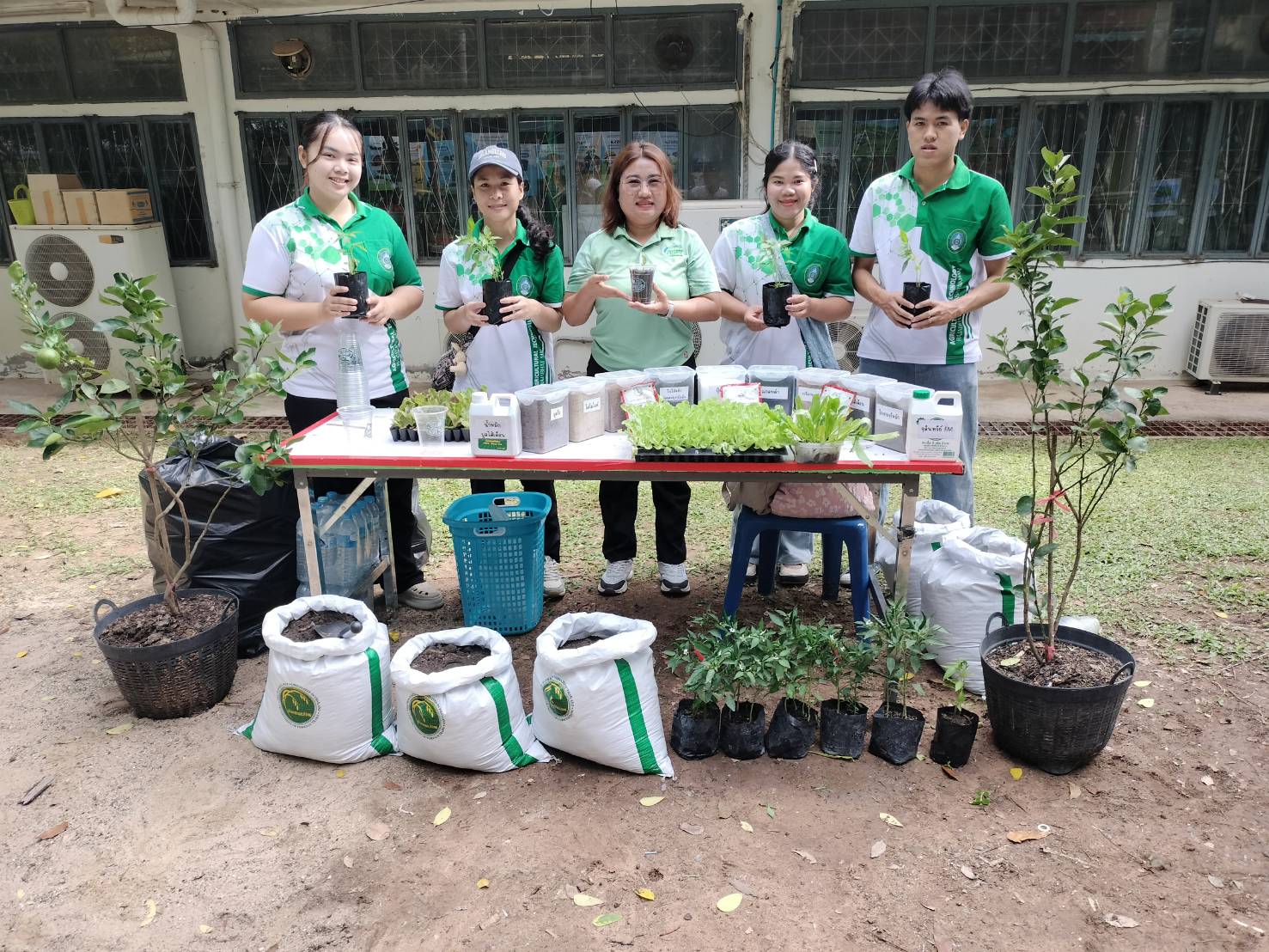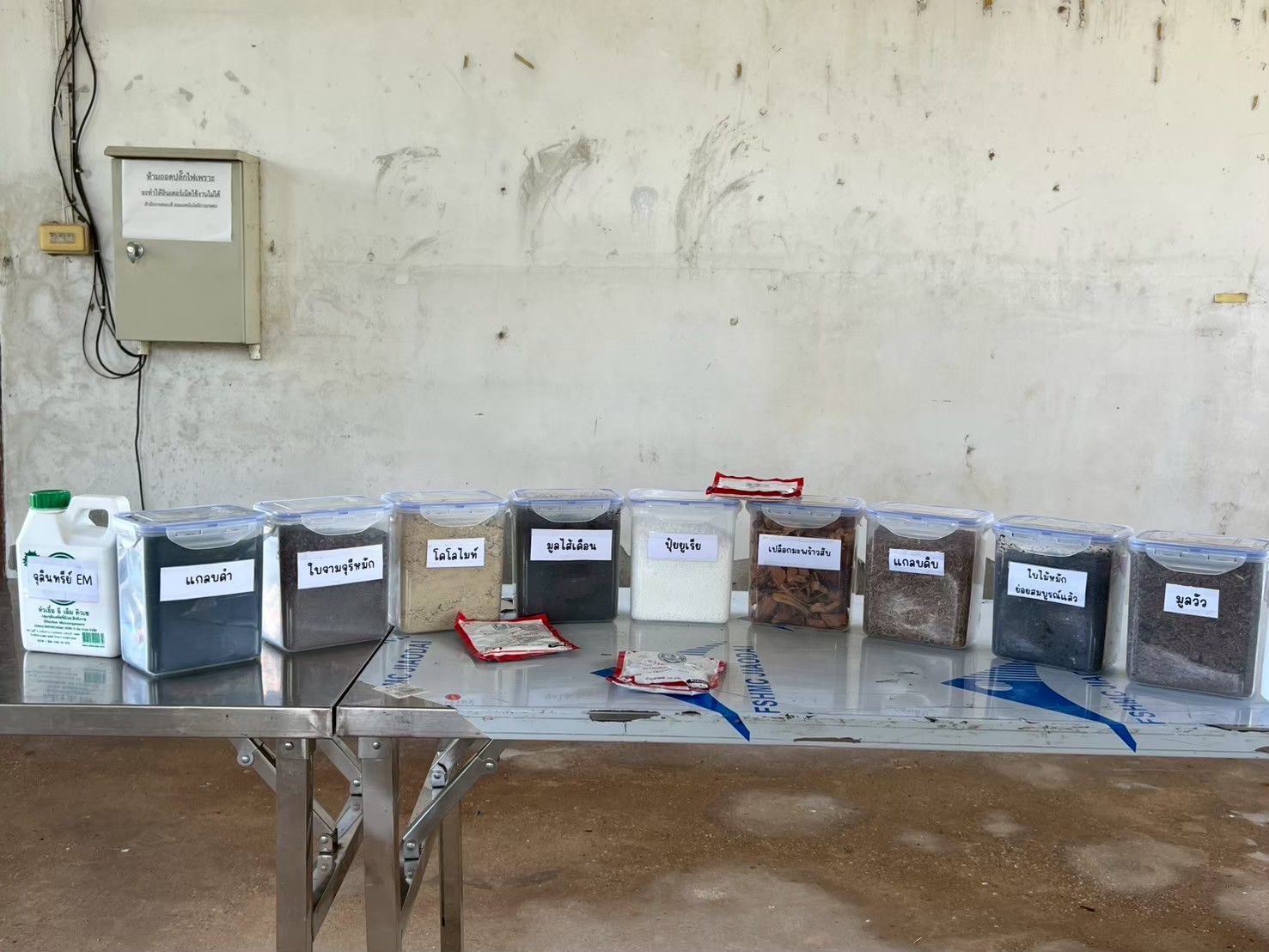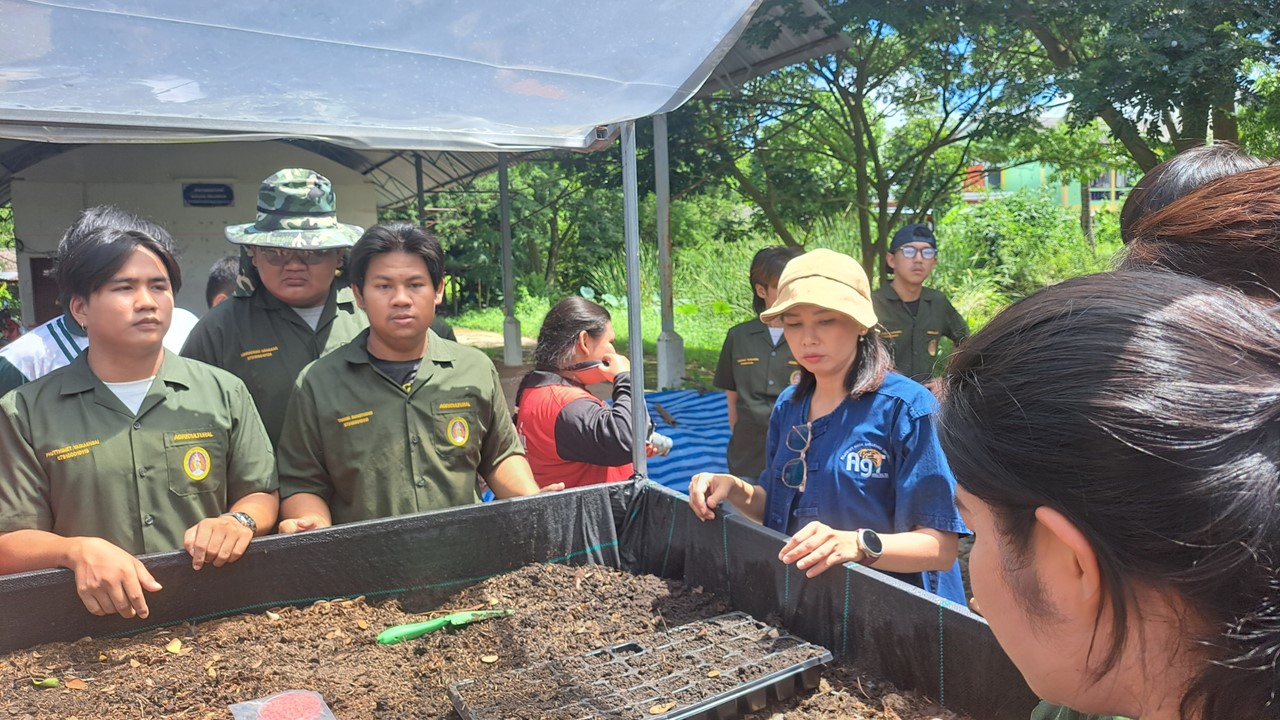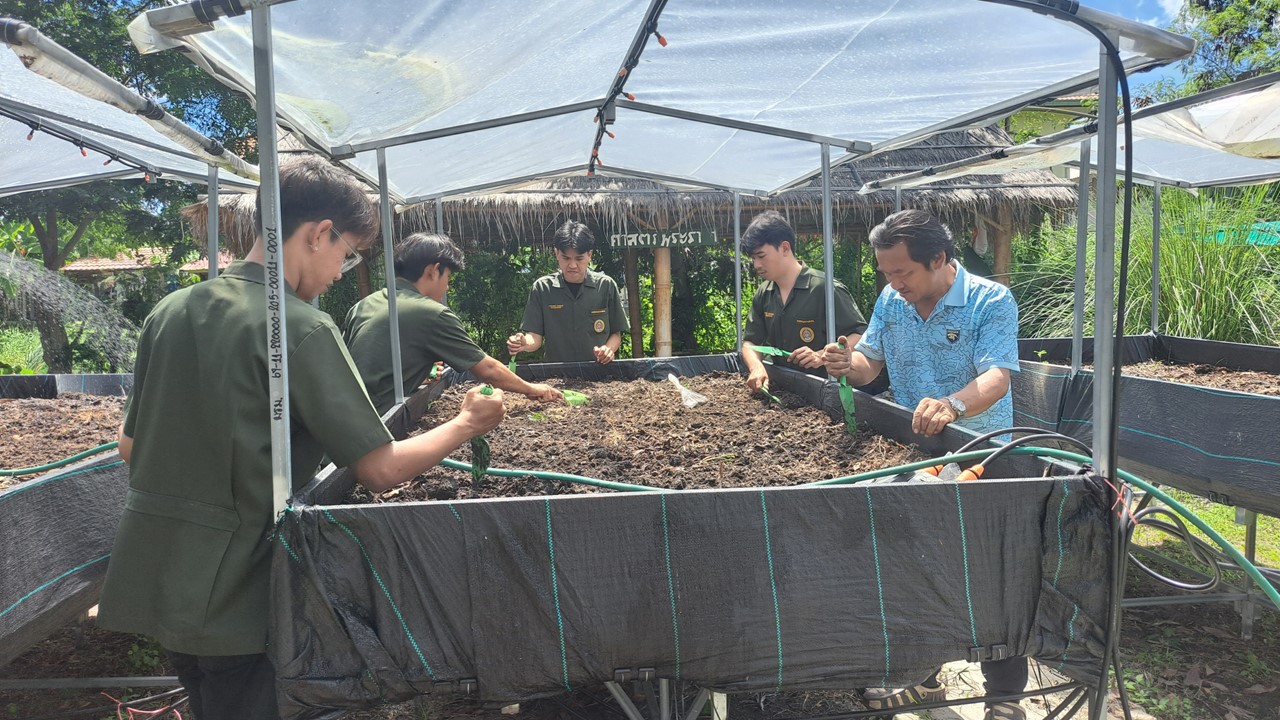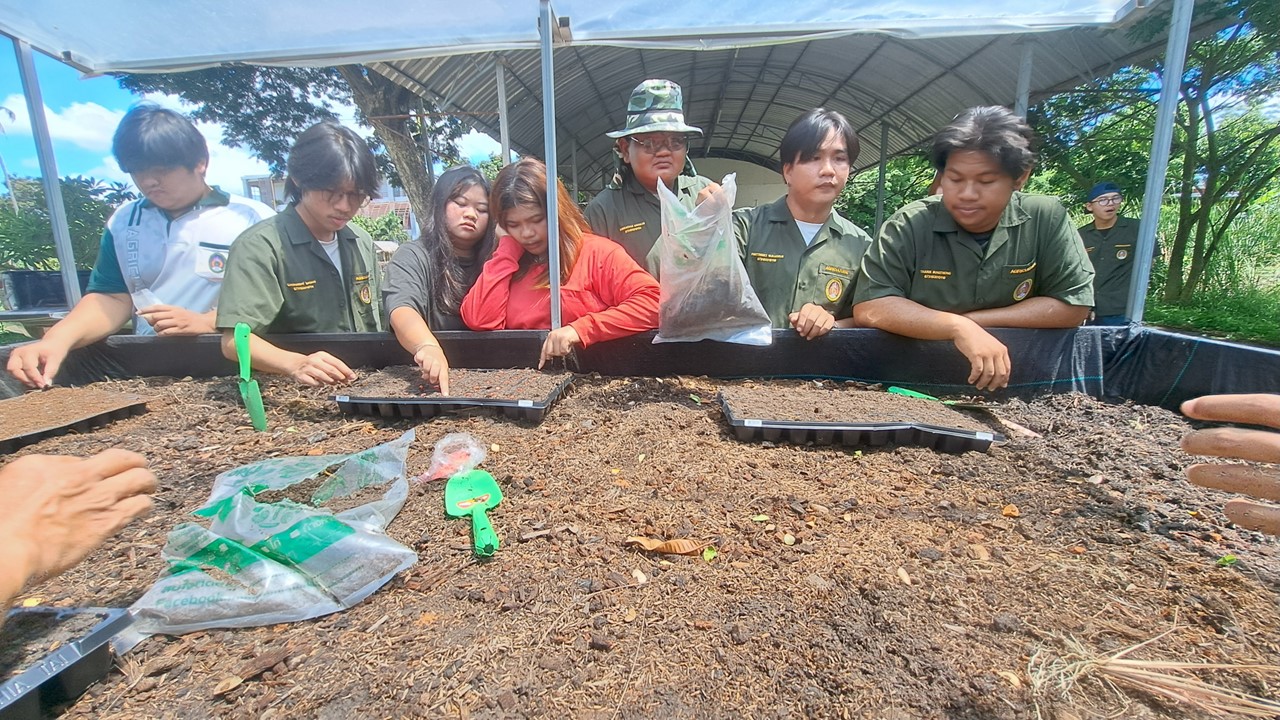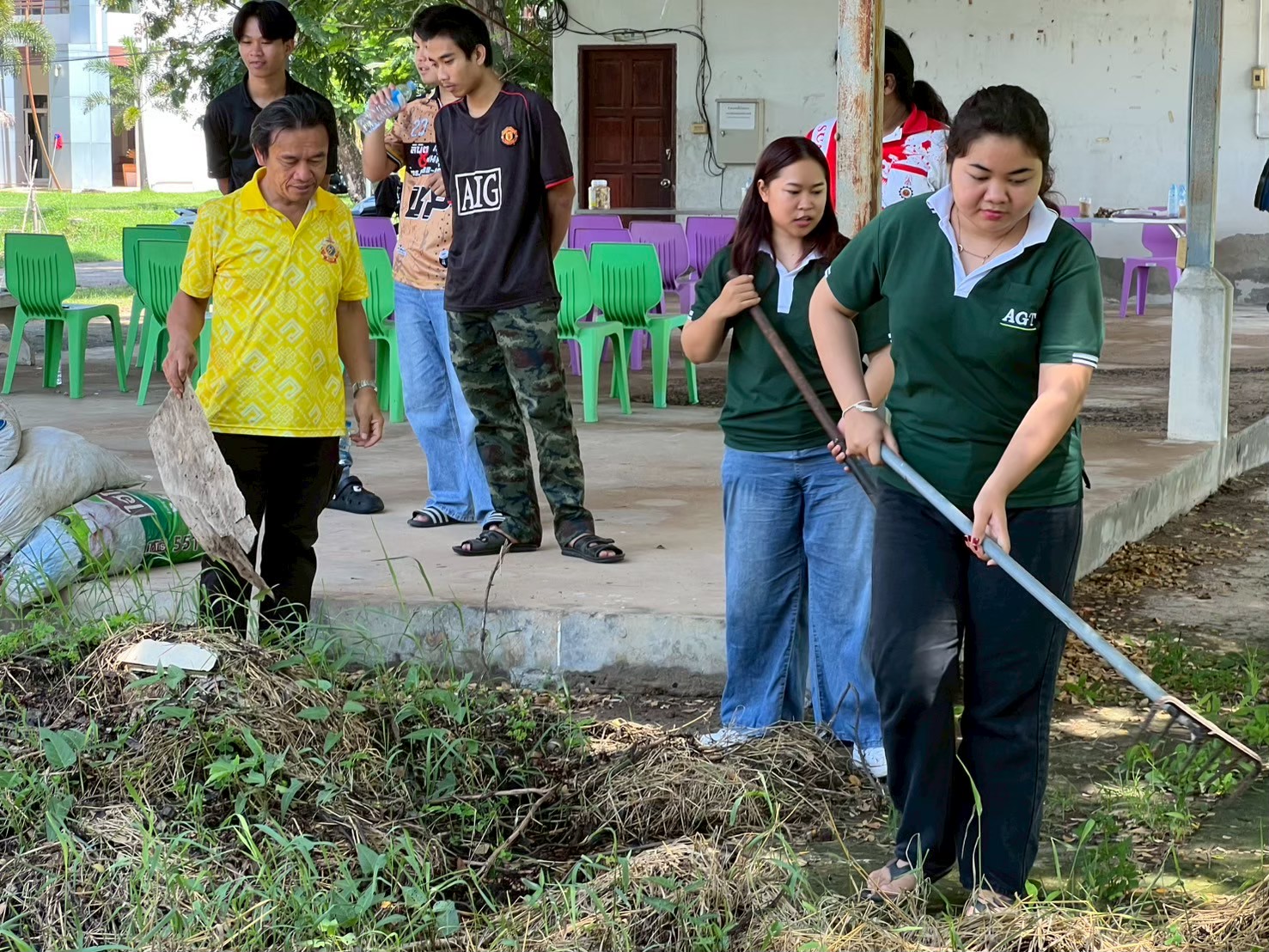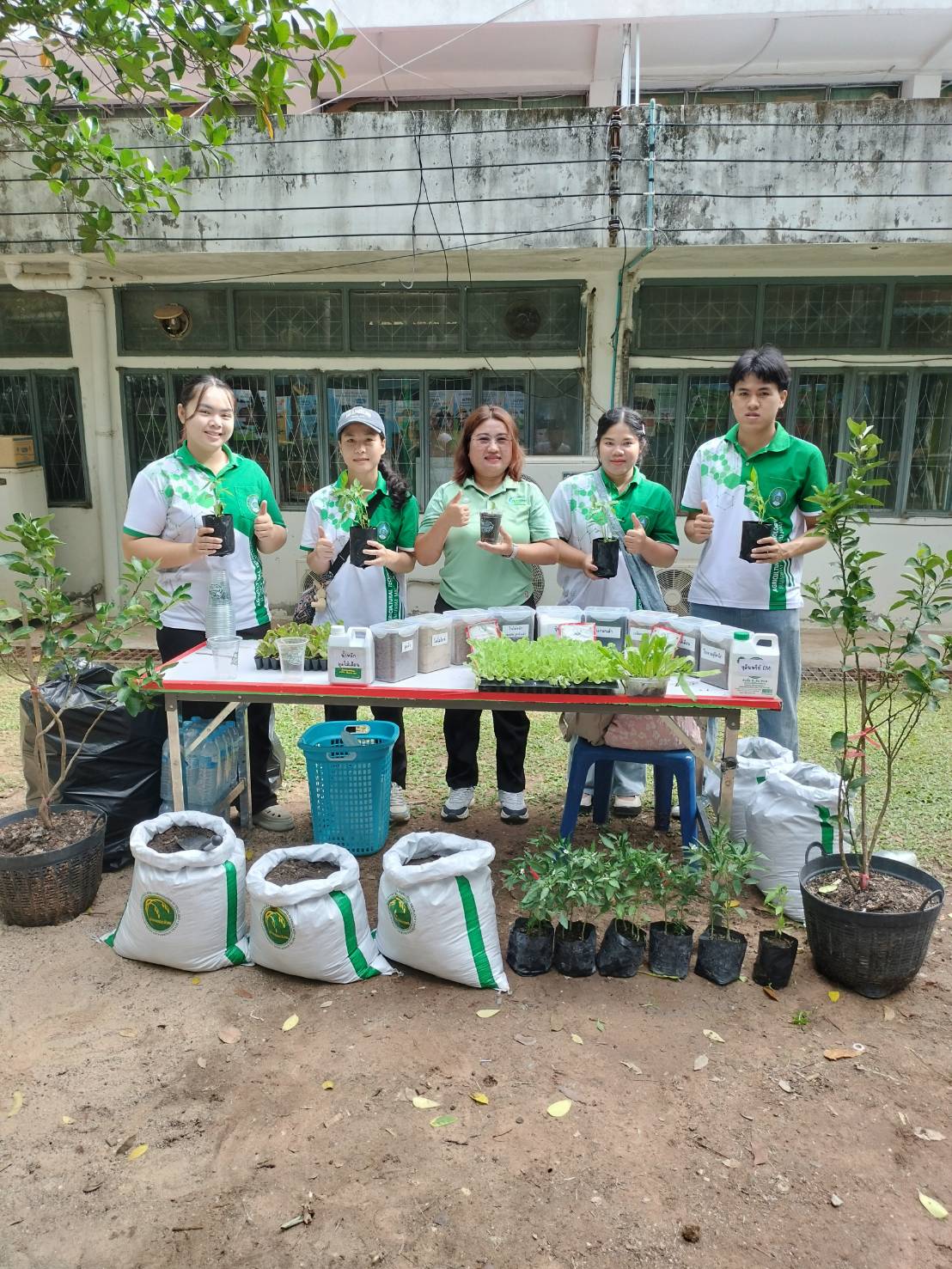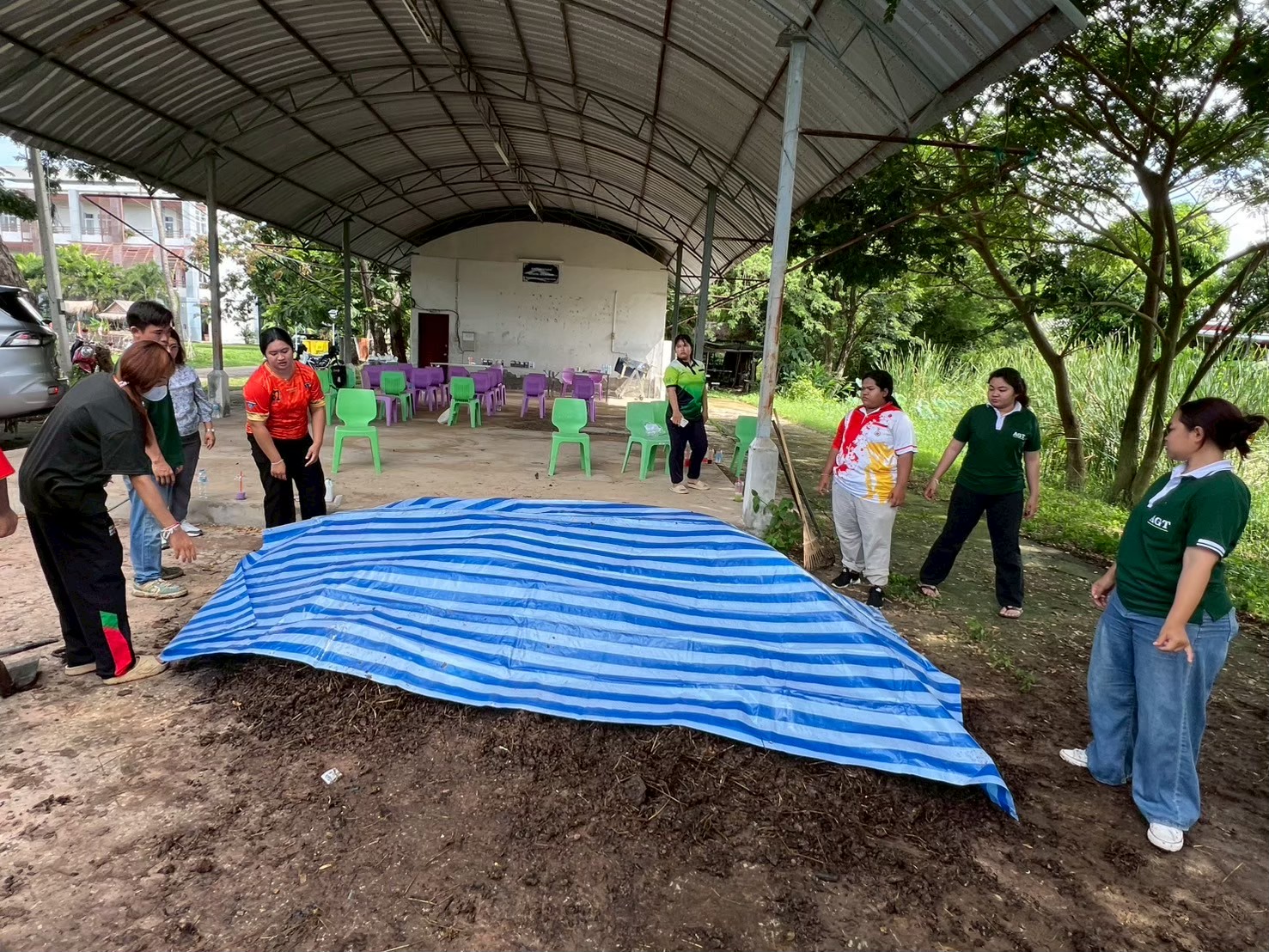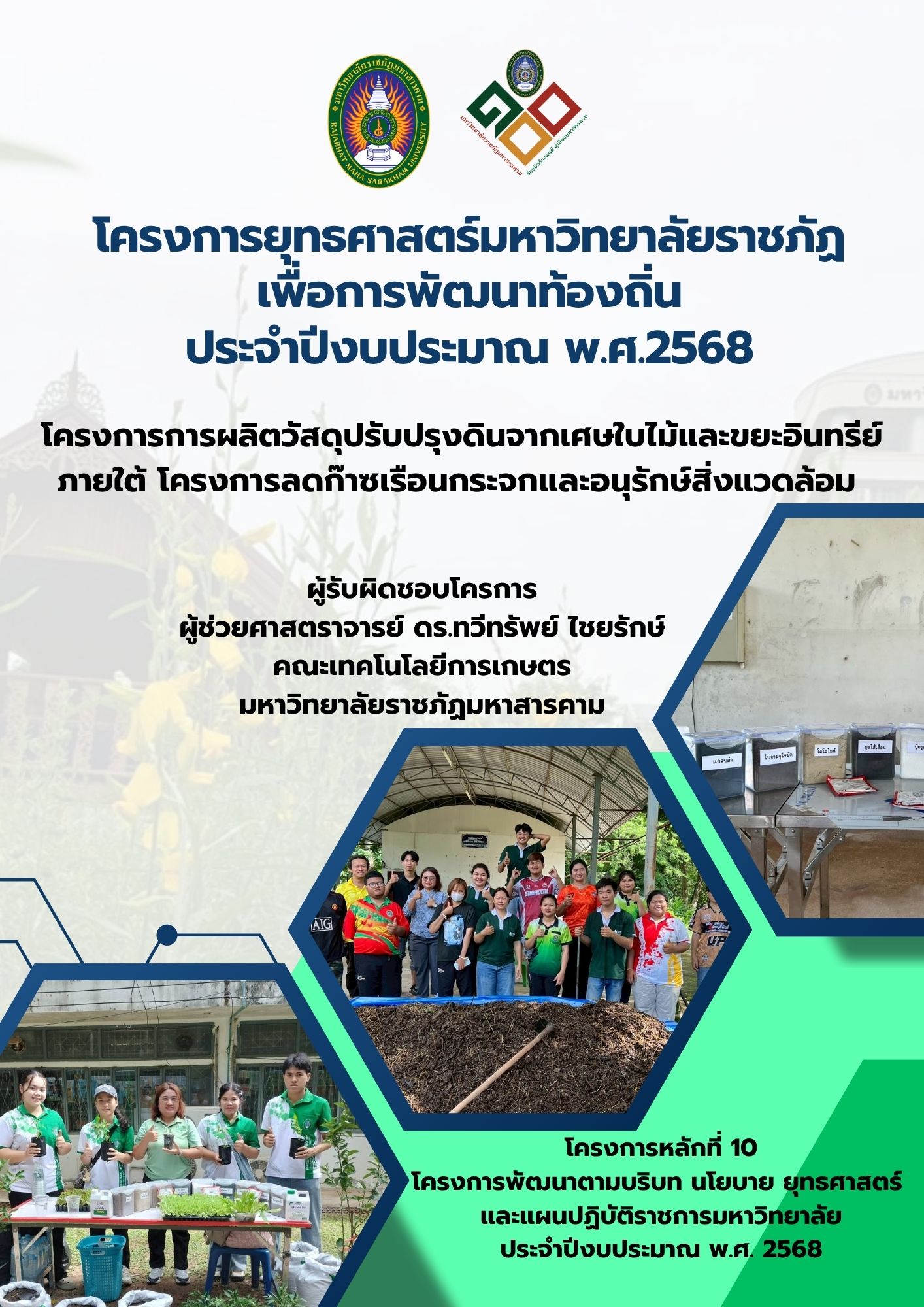
Production of Soil Amendment Materials from Leaf Litter and Organic Waste
ผู้รับผิดชอบ ให้ข้อมูล : ผศ.ดร.ทวีทรัพย์ ไชยรักษ์
SDG ที่เกี่ยวข้อง
เป้าหมายย่อย เป้าหมายย่อย เป้าหมายย่อย เป้าหมายย่อยความสอดคล้องกับยุทธศาสตร์มหาวิทยาลัย : พันธกิจสัมพันธ์เพื่อการพัฒนาท้องถิ่นอย่างสร้างสรรค
แหล่งงบประมาณ : งบประมาณแผ่นดิน
กลุ่มเป้าหมาย : นักศึกษา
Project Implementation Area : คณะเทคโนโลยีการเกษตร ตำบล Talat อำเภอ Mueang Maha Sarakham จังหวัด Maha Sarakham 44000
Project Duration: June 1, 2025 – July 31, 2025
Objectives :
1. To transfer and integrate knowledge on the management of leaf litter and organic waste for efficient utilization.
2. To disseminate and apply technology for producing soil amendment materials from leaf litter and organic waste to university units.
3. To raise awareness and promote understanding, participation, and environmentally friendly practices among students in the Faculty of Agricultural Technology, as well as extending these benefits to local communities.
Activities :
The project was conducted through two main training workshops:
- Activity 1: Workshop on Knowledge Transfer: the Production of Soil Amendment Materials from Leaf Litter and Organic Waste, held on 28–29 June 2025 at the Multipurpose Building, Faculty of Agricultural Technology, Rajabhat Maha Sarakham University.
- Activity 2: Workshop on KnowledgeTransfer: Enhancing the Commercial Potential of Soil Amendment Materials, held on 5–6 July 2025 at the same venue.
Number of project participants: 30 people
Project Budget: 80,000 Baht
Results :
- One set of technological knowledge on the production of soil amendment materials from leaf litter and organic waste was successfully developed — 100% achievement of the target.
- One prototype soil amendment product was successfully produced — target achieved.
The project fully accomplished its primary objectives. The prototype product was developed, a comprehensive project report was completed, and, importantly, new knowledge was generated that can be further disseminated and applied.
Results society :
The project enhanced the university’s image as an environmentally responsible institution.
According to the project’s performance report, composting activities under this project significantly reduced greenhouse gas emissions, equivalent to 279.53 kgCO₂eq.
This demonstrates the project’s tangible contribution to Rajabhat Maha Sarakham University’s greenhouse gas reduction and climate action goals.
Participation :
Students gained hands-on knowledge and technological skills from the workshops and were able to apply them in real-world contexts.
Project continuity :
An official community-based compost learning center should be established to expand the project’s knowledge dissemination and promote wider participation.
Problems obstacles :
1. Shortage of Equipment: Limited availability of leaf shredders and related tools hindered continuous project implementation.
2. Community Engagement: Raising public understanding and awareness of organic waste separation remains a significant challenge requiring sustained effort.1.
Improvement :
1. Project Expansion: Establish a formal community compost learning center to broaden outreach and participation.
2. Policy Integration: The university should adopt a clear institutional policy to promote waste segregation and organic waste utilization, ensuring the project’s long-term sustainability.
3. Technology Application: Appropriate technologies and machinery should be introduced to enhance efficiency in organic waste processing and large-scale production.
Suggestions :
The university should adopt a clear institutional policy to promote waste segregation and organic waste utilization, ensuring the project’s long-term sustainability.
